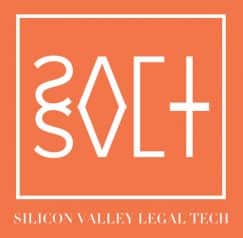What were the biggest trends in legal tech this past year and what’s coming next? The Silicon Valley Legal Tech group includes CEOs of some of the most innovative tech companies in the legal space. So, to kick off the new year, founding member Sarah Schaaf asks fellow members from Casetext, Court Buddy, Everlaw, Hello Divorce, Lawmatics, Lawyaw, Legal.io and Smith.ai about the state of legal tech heading into 2020. What should we expect?

Table of contents
- Sarah Schaaf, CEO @ Headnote
- Jennifer McGlone, Chief Legal Officer @ Court Buddy
- Aaron Lee, CEO @ Smith.ai
- AJ Shankar, CEO @ Everlaw
- Hannah Konitshek, Business Operations & Strategy @ Legal.io
- Erin Levine, CEO @ Hello Divorce
- Tucker Cottingham, CEO @ Lawyaw
- Nicole Fuentes, Director of Partnerships & Legal Content @ Casetext
- Matt Spiegel, Founder & CEO, @ Lawmatics
- About Silicon Valley Legal Tech
Sarah Schaaf, CEO @ Headnote
Looking back on 2019, it really seems like the “changing of the guard is upon us”: There is a new law firm decision-maker and they have different expectations than previous generations of attorneys. This will result in a change in how law firms make decisions about new software in 2020. The most important thing for legal tech in 2020 is the user experience for both the attorney and the client. Modern and more agile legal tech companies are modeling the software they make for lawyers after the software we all use in our everyday lives as consumers. This new appreciation for UX will help raise the bar and level up the technology we see across the entire industry as the old UX standards for on-premise, enterprise software solutions are now unacceptable.
Similarly, the new age of law firm management in 2020 will bring more appreciation for data and business metrics than ever before. Law firm owners and operators are looking at law firms more like traditional businesses and wanting to understand key performance indicators like CAC (customer acquisition cost) and how this compares with LTV (lifetime value of a customer or client). Similarly, understanding metrics like NPS (net promoter score or client satisfaction ratings) will be the thing that separates successful and efficient firms from the pack and gives them a leg up on the competition in 2020.
Jennifer McGlone, Chief Legal Officer @ Court Buddy
One of the biggest innovations for attorneys is tech that enables them to reach an unserved and largely untapped middle-class market for legal services, which expands the legal market in exciting ways. Tech platforms such as Court Buddy match attorneys and clients for unbundled legal services at flat rates, which helps bring middle-class consumers into the legal market and helps attorneys find new, paying clients to grow their practices.
Aaron Lee, CEO @ Smith.ai
Text-based communications — like website chat, Facebook messenger and SMS — are increasingly preferred by potential clients looking for legal help, as it increases potential clients’ access to law firms without creating a productivity-killing interruption.
Typing or keying in text, rather than talking by phone, affords the client an ability to communicate discreetly about sensitive and private matters that they don’t wish workers, family and friends to “overhear” in the office, at home and elsewhere. And the conversation can happen during business hours when both the client and law firm are open, but when there is seldom time for a “break” by either party.
Further, thanks to the proliferation of low-cost or free automated chatbots, lawyers can now provide instantaneous responses to potential clients, screen the potential client right within the chat conversation, and move qualified leads to the next “consultation” step without direct involvement; everything happens automatically and is completely customized for each firm’s practice areas and preferences.
AJ Shankar, CEO @ Everlaw
2020 will bring higher expectations around user experience. In the ’90s there was a big separation between workstations and home computers. In the 2000s, you saw the melding of two worlds with the development and popularity of smartphones. Consumers started doing work on their smartphones, which raised their expectations for the enterprise software they were using at work — why should it be so much worse? This convergence continued in the 2010s with the dominance of cloud software, which allowed work to be done from pretty much anywhere. Continuing this trend, in 2020 we’ll see more demand for the enterprise software we use at work to meet the high user experience bar set by consumer-grade apps and devices.
Clients also have higher expectations around the technical competence of law firms, and in 2020 law firms will need to adjust to these expectations. Immediate gratification and responsiveness is something we’ve all come to expect in our everyday lives (e.g., Amazon delivery) and this is bleeding into the legal industry; clients will want to experience the same quality of service from their law firms. Finally, in 2020 we’ll see a higher demand around self-service tools as people would rather click a button than deal with using traditional services.
Hannah Konitshek, Business Operations & Strategy @ Legal.io
The biggest 2020 legal trend will be a renewed focus from in-house departments and law firms on doing more with less. Based on the economic cycle, it feels increasingly likely we’ll see an economic plateau or downturn in the next two to five years, and our customers are beginning to look at solutions that will help them get ahead of this.
Erin Levine, CEO @ Hello Divorce
Lawyers today are providing services to a much smarter, savvier consumer than in previous years. They are looking to the lawyer as the “artist,” the one who will help them develop a strategy and execute on that strategy during litigation and negotiation, not to give them the information that they can find themselves with a simple Google search. Clients have access to information, they depend on their lawyer to do more than provide what they can find themselves.
Tucker Cottingham, CEO @ Lawyaw
In 2020 we’ll see more lawyers moving to flat-rate projects, and leveraging technologies like document automation to be more efficient, reduce the risk of errors and increase profitability.
Nicole Fuentes, Director of Partnerships & Legal Content @ Casetext
In 2019 we saw attorneys becoming more comfortable with AI solutions, but they want to see it translate into value for their practices. We constantly hear that attorneys want AI solutions that can help them be more profitable by shaving hours off their research and brief writing. Casetext will address this need with a new product in 2020, enabling attorneys to seamlessly integrate AI-powered research into their brief-writing process.
Matt Spiegel, Founder & CEO, @ Lawmatics
CRM has finally come to legal. For over a decade CRM and marketing automation tools have been critical to companies throughout the technology industry and beyond. Now, the benefit of these tools has become apparent to law firms as they begin to focus on their business and not solely the practice of law. With the addition of systems like Lawmatics, law firms now have a dedicated CRM to help them grow.
About Silicon Valley Legal Tech
SVLT’s mission is to bring together Silicon Valley and Bay Area legal tech founders to share ideas and information that lead to building better products that help more people. We believe that emerging legal tech companies are perfectly positioned to drive innovation and be a catalyst for positive, impactful changes in our industry. We are change makers and innovators united by ideas and products that are moving the legal industry forward. We seek to empower our member companies with access to a diverse network and resources that help them grow, refine, and promote their ideas. For more information and to join the group, go to www.svlegaltech.com.
More Tech Trends …
Small Firm Tech Trends: What’s Coming Down the Pike in 2020? Tips from Heidi Alexander, Sheila Blackford, Jim Calloway, Jared Correia, Natalie Kelly, Sharon Nelson and John Simek, Nerino Petro, and Reid Trautz.
















